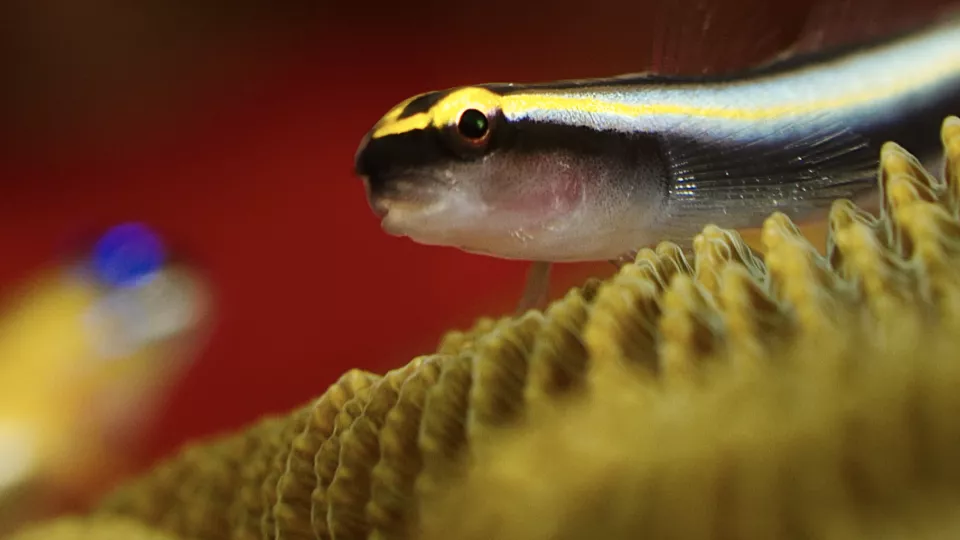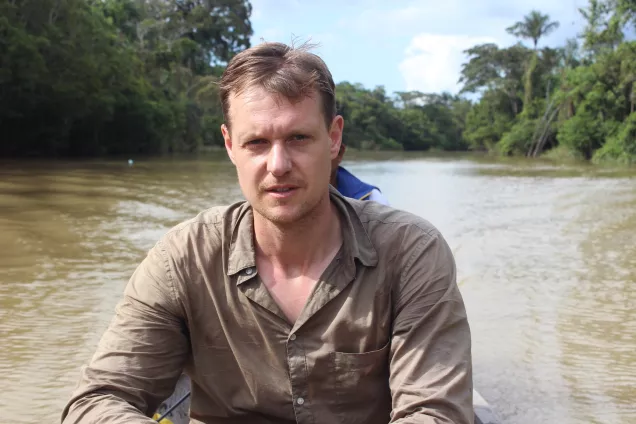LUCSUS researcher, Torsten Krause, who is part of the project together with Director Emily Boyd, highlights key challenges that the project is trying to address, and why he is so excited to work in this area.
Why are marine coastal ecosystems so important to study?
Marine coastal ecosystems are very threatened by climate change, at the same time they are very important for climate change mitigation. Kelp forests in the temperate and colder seas, for instance around Norway and the UK, and sea grass meadows like those found in the western Mediterranean store large amounts of carbon and fulfill a range of other ecological functions (nursery for fish, protection of coastal areas against erosion and storms, clean and clear water, tourism etc.). Coral reefs, on the other hand, are tremendously important for many species of marine life, and in the Caribbean they are a major source of income from dive tourism.
Ultimately these ecosystems provide many benefits for people, but we do still not know everything about them, nor how these ecosystems will change in the coming years and decades when the impacts of climate change become more severe and visible. It’s important to protect them from direct threats so they can continue to provide the many benefits we receive, but at the same time we need to understand how we can support adaptation measures that allow these ecosystems and the people that depend on them to thrive in the future. These are the challenges we seek to address in MaCoBioS. LUCSUS is involved in several work packages.
In the coming years we will work on:
- Adaptation to climate change scenarios that seek to understand and increase the awareness, ability and attitude of different groups of local actors to consider and face with up-coming cumulative impacts linked to climate change.
- Policy guidance and research and innovation orientations where we will develop a framework for evaluating readiness for policy change, this includes the drafting and dissemination of four policy briefs that will summarize the findings of the project and makes them accessible for a wider audience and hopefully directly feed into future marine coastal policy making processes.
Lastly, we will put a lot of effort into the communication and dissemination activities since LUCSUS is leading the corresponding work package. We will build a strong media presence and encourage all participating partners to present and show their research and the results to the outside world so that we can all learn more about these truly fascinating ecosystems that many of us have never seen with our own eyes.
What excites you with the project?
This project breaks a lot of new ground for me. Until now I have only marginally been working with marine coastal issues, since I mainly work with forest related topics. I am a big proponent of interdisciplinarity, and I would like to break the scientific silo thinking. The global sustainability issues know no scientific, geographical or administrative boundaries and are often interlinked in many ways.
In the end it always comes back to how we as people and in society can cooperate across spatial and institutional scales and levels to find solutions for a fair, just and effective management and use of the resources we depend upon.
Ultimately it is about sustaining what sustains us, making sure we know what’s out there, how our actions impact it, and then trying to change the harmful actions to positive actions. In the marine context this is always a bit more complicated since it is out of sight for many people and there are a lot of ownership issues, unlike land that can be fenced off and where we can implement management strategies and adjust them accordingly, marine systems are literally much more fluid and mobile. Moreover, the impacts of climate change are also felt more strongly there, since the oceans heat up faster and become more acid which poses a great threat for the marine food web.
What do you hope to contribute as a researcher?
I hope that MaCoBioS and my work helps to bring the tremendous importance of marine costal ecosystems to the public’s attention.
After all, oceans cover the more than 70% of our planet and contrary to public belief, it is the oceans that are the lungs of the world and provide us with a lot of food, joy and beauty – all for free. This has for all of human history just been there and we have taken this for granted. It is time to give back and start taking the challenges ahead of us serious as society and as policy makers.
With MaCoBioS I hope we can add to the knowledge gaps but also provide success stories and ways forward for making a more sustainable use and management of these amazing ecosystems a reality.

